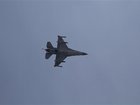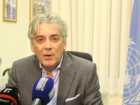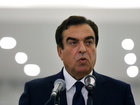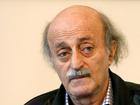Hizbullah has denounced Australia's decision to list the whole group as a "terrorist organization," accusing Canberra of bowing to U.S. and Israeli demands.
Hizbullah has long been targeted by U.S. sanctions and blacklisted by the U.S. and Israel as a "terrorist" organization, but the Iran-backed group is also a powerful political player, with seats in Lebanon's parliament.
 Full Story
Full Story
Josep Borrell, High Representative of the European Union for Foreign Affairs and Security Policy, Jutta Urpilainen, European Commissioner for International Partnerships, and EU Ministers of Foreign Affairs and Development from 24 Member States have co-authored an op-ed marking the first anniversary of the EU Gender Action Plan III and the International Day to eliminate violence against women.
Naharnet exclusively publishes the English-language version of the op-ed below, as received from the Delegation of the European Union to Lebanon:
 Full Story
Full Story
Israeli strikes targeting a part of Syria where fighters loyal to Lebanon's Hizbullah are based killed five people Wednesday, a war monitor said.
The Israeli missiles struck an area near three villages in the west of Homs province, said the Syrian Observatory for Human Rights, a Britain-based group with a wide network of sources on the ground.
 Full Story
Full Story
President Michel Aoun on Wednesday lamented the presence of “systematic campaigns that are based on lies and aimed at political assassination.”
The President, however, stressed that he is determined to “try and make the necessary change, no matter the challenges.”
 Full Story
Full Story
UNIFIL Spokesperson Andrea Tenenti has dismissed what he called “unsubstantiated allegations,” after al-Mayadeen TV mentioned UNIFIL’s naval force in a report about the Beirut port blast and the ship that carried the huge quantity of the explosive ammonium nitrate substance.
“Some recent media reports speculating on the activities of the UNIFIL Maritime Task Force (MTF) in the context of the tragic Beirut port explosion of 4 August 2020 have made unsubstantiated allegations with disregard to UNIFIL's mandate and the way the MTF operates,” Tenenti said in response to a question by state-run National News Agency about the report.
 Full Story
Full Story
The first step in resolving the diplomatic crisis with the Gulf is Information Minister George Kordahi's resignation, political sources told LBCI.
The sources affirmed to the TV channel that Kordahi’s sacking won’t be discussed in the cabinet for voting.
 Full Story
Full Story
A “scenario” for resolving the governmental and judicial crises is making progress, highly informed sources said.
The reported solution is based on the pledges that President Michel Aoun, Speaker Nabih Berri and Prime Minister Najib Miqati made to each other in their latest meeting in Baabda, the sources told al-Joumhouria newspaper in remarks published Wednesday.
 Full Story
Full Story
In his meeting with President Michel Aoun and Prime Minister Najib Miqati, Speaker Nabih Berri “won the issue of settling investigative judge Tarek Bitar’s issue in parliament, should the judiciary fail to find a solution within a week,” informed sources said.
Miqati was meanwhile promised with the resumption of Cabinet sessions although a specific date was not agreed, the sources told Kuwait’s al-Anbaa newspaper in remarks published Wednesday.
 Full Story
Full Story
Progressive Socialist Party leader Walid Jumblat has said the principle of “managing or suspending the disagreements” with Hizbullah is still valid.
He told al-Joumhouria newspaper, in remarks published Wednesday, that “one has the right to raise his voice sometimes in order to express a position or a cry.”
 Full Story
Full Story
Australia on Wednesday listed all of Hizbullah as a "terrorist organization," extending a ban on the armed wing to the entire movement, which wields considerable power in Lebanon.
Australian Home Affairs Minister Karen Andrews said that the Tehran-backed group "continues to threaten terrorist attacks and provide support to terrorist organizations" and poses a "real" and "credible" threat to Australia.
 Full Story
Full Story



